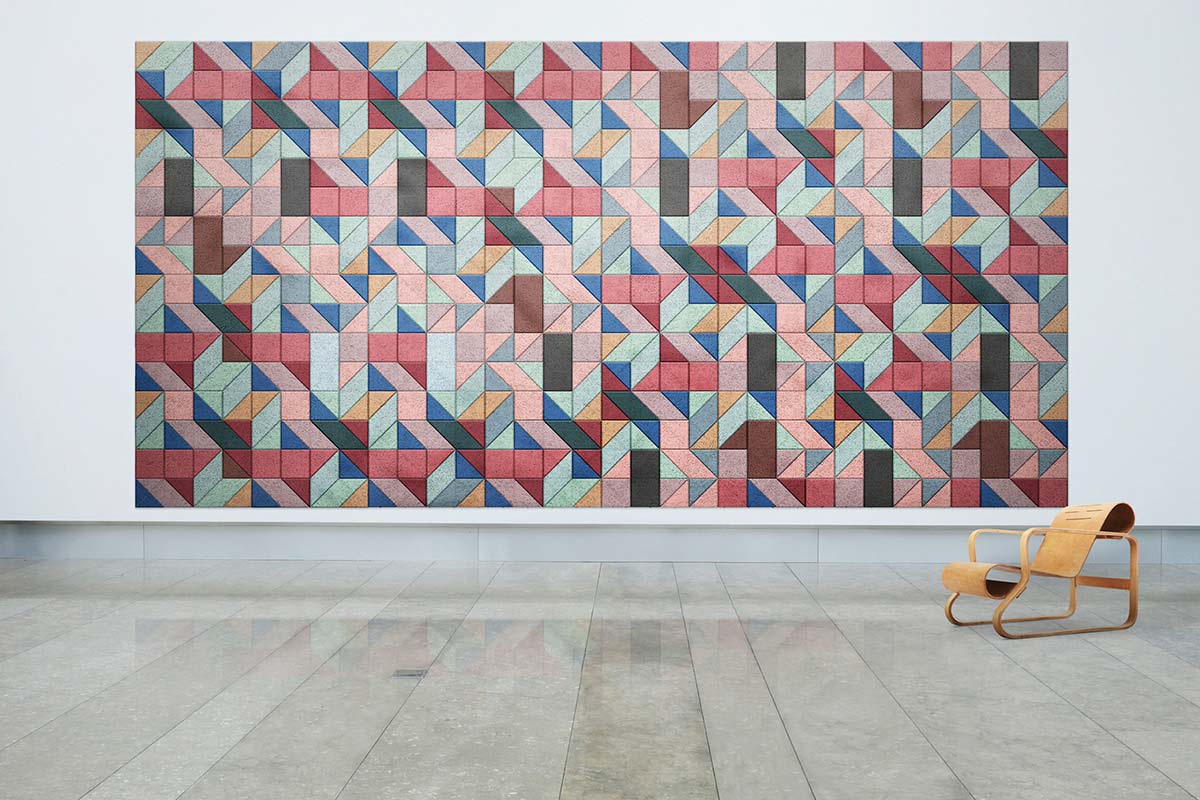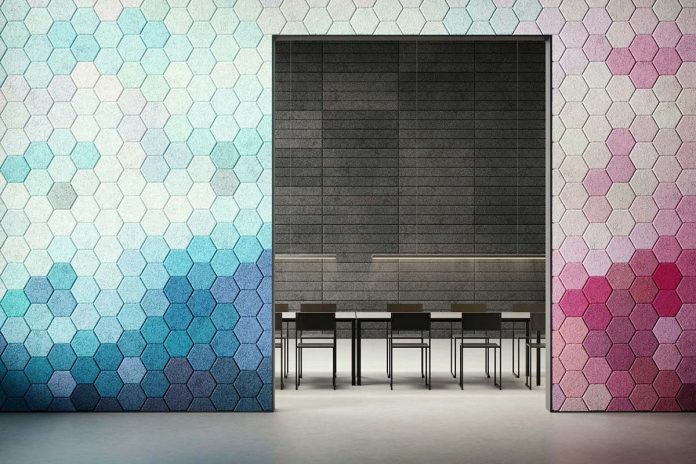“Silence is golden,” the old saying goes, and it sounds more accurate than ever today. Analyses and predictions regarding the market for acoustic corrections, in fact, suggest that the turnover in this sector is growing rapidly, and will continue to do so in the years to come, reaching a level of 18.25 billion dollars in the world by 2028 (today the figure is 16 billion). Acoustics, in general, is the science that studies the transmission of sounds. When it is applied to construction, architecture and design, it can be crucial to find solutions that help us to insulate spaces, protecting them from more or less troublesome background noise.
This sector met with a big boost during the COVID-19 pandemic, which forced many people to spend more time at home, leading to the desire for more protection and privacy – also in relation to sound – and for improvement in psychophysical wellness. As the engineer Francesco Asdrubali, a professor at Università Roma Tre and president of the Associazione Italiana di Acustica (AIA), reminds us: “Acoustics is an interdisciplinary science, in dialogue with urban planning, architecture, transportation and medicine, addressing all the aspects of personal health.”
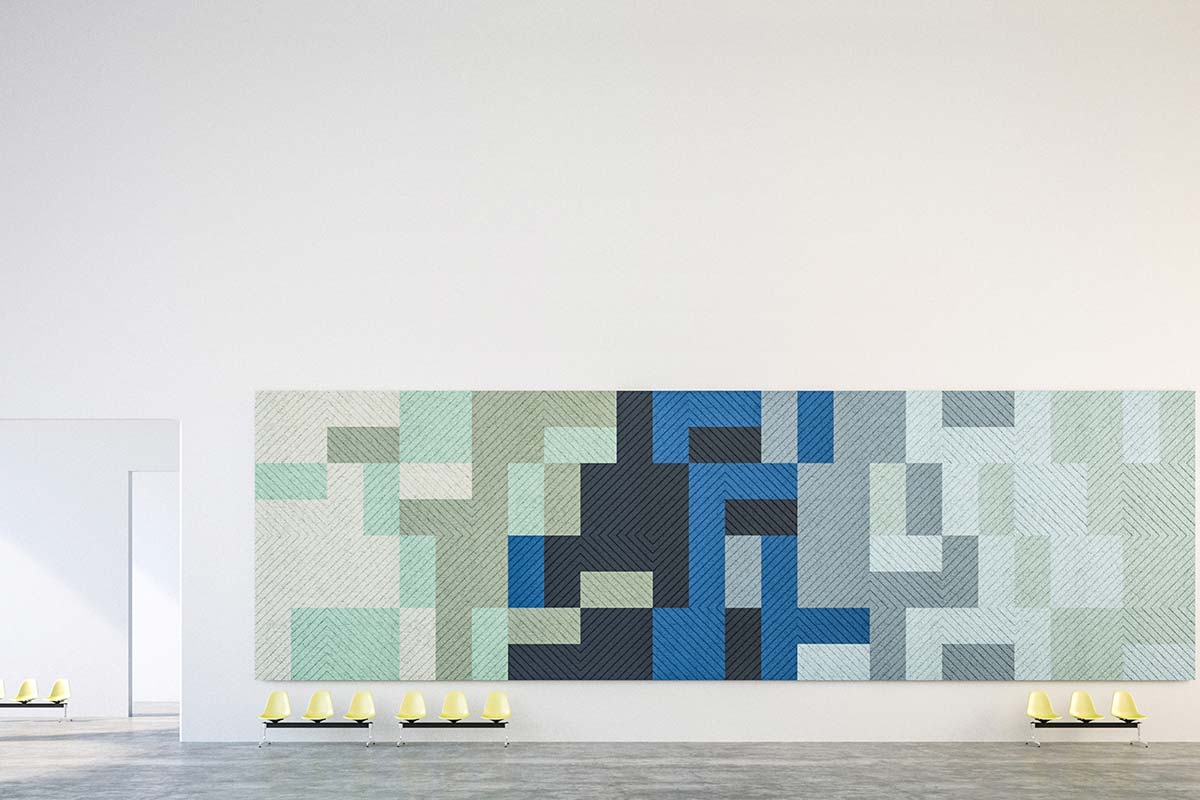
In construction, any material utilized to reduce noise is defined as “sound-absorbent.” Nevertheless, the driving force behind orders and (increasing) market value today is above all the pursuit of sustainability and the use of innovative insulating materials that are also enjoyable to see. No longer just plasterboard walls, rock wool and felt or wooden panels, in short, but also recycled acoustic materials and/or metamaterials made with 3D printers. “In Europe and above all in Italy, the state of the art in acoustics is excellent,” Asdrubali asserts. “We have many research centers that represent excellent international players, and there are companies that are very active in the production of avant-garde sound-absorbing and soundproofing panels.”
Slalom Acoustic
At Stockholm Design Week 2024 this young company has just presented the project Unfolding, created by Studiolatte, which addresses the need for comfort and sustainability through bio-based finishes like Woody and Bloom. These are two new natural coverings: Woody is in FSC wood and recycled plastic fibers, while Bloom is made with natural fibers and flower petals. “In this way, we take sound-absorption into new territories,” says Elettra de Pellegrin, architect and CEO of Slalom.
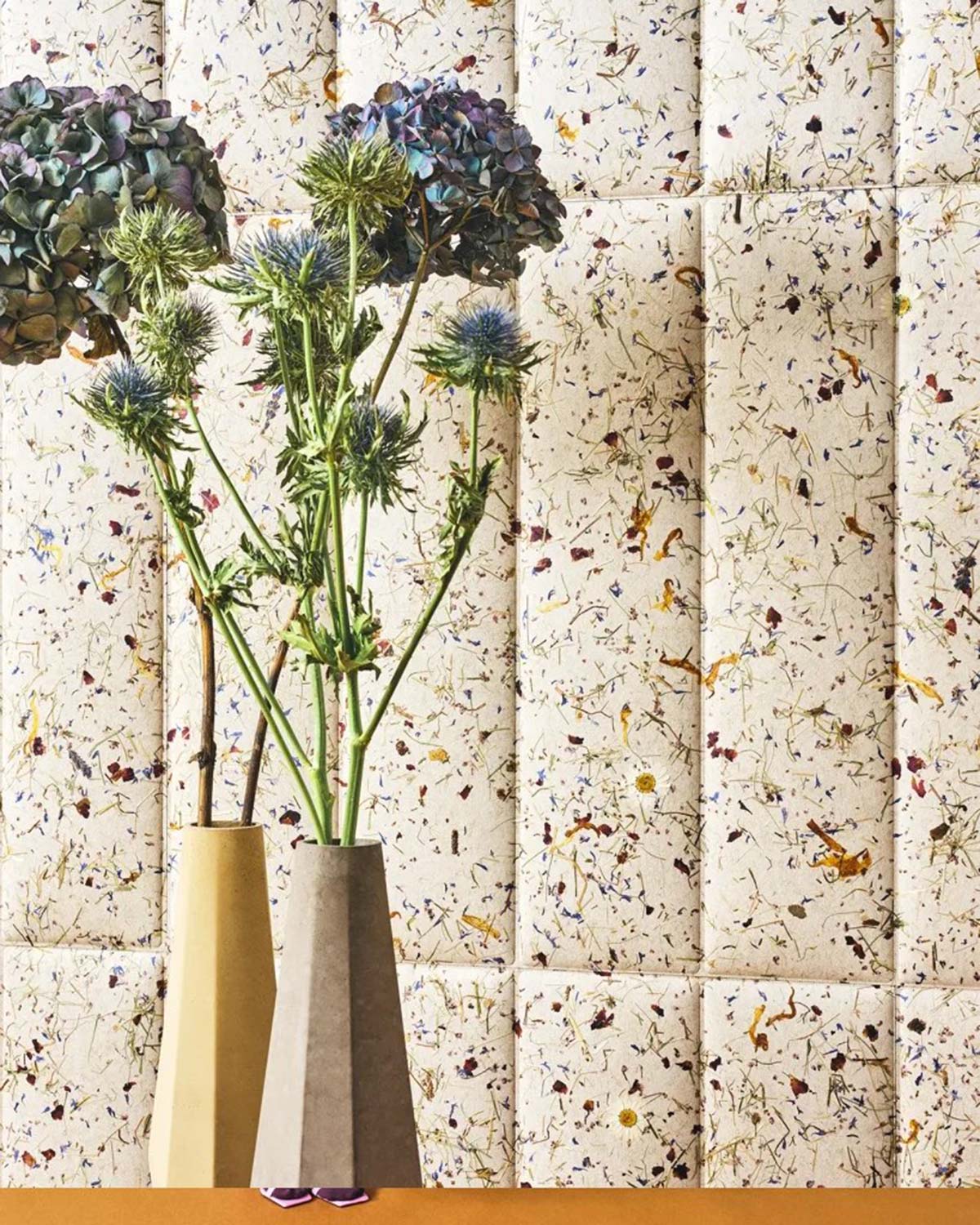
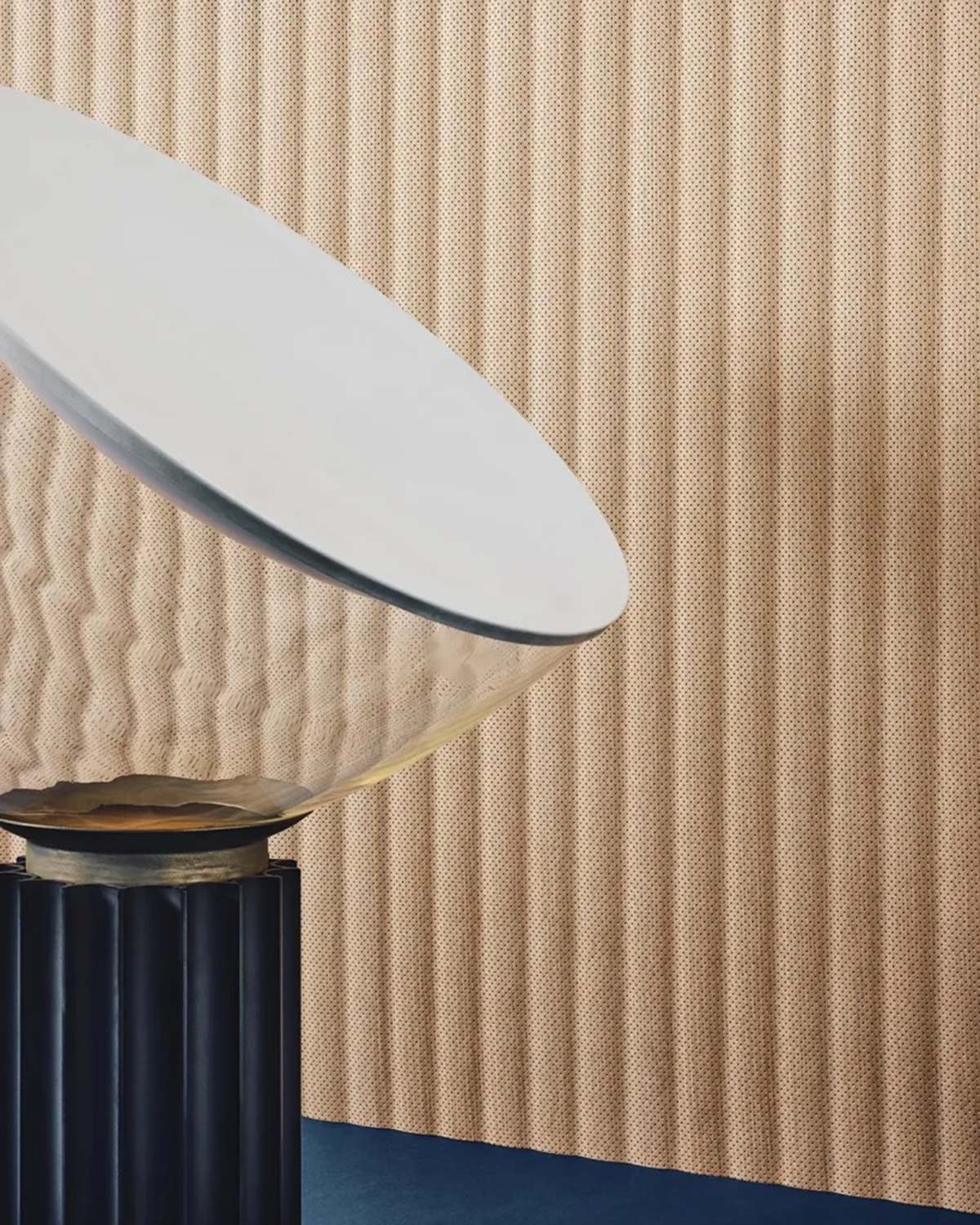
Collezione Snowsound di Caimi Brevetti
Founded in 1949, Caimi is a reference point in the field of furnishings for offices, homes and contract projects. In recent years, with the Snowsound initiative, it has focused on acoustic wellbeing, also developing two software systems to improve sound-absorption in new and existing spaces. The innovative sound-absorbing solutions are “hidden” in normal furnishings, such as lamps and lampshades, but also sofas and ottomans made with sound-absorbing technopolymer fillers and wood-based materials.
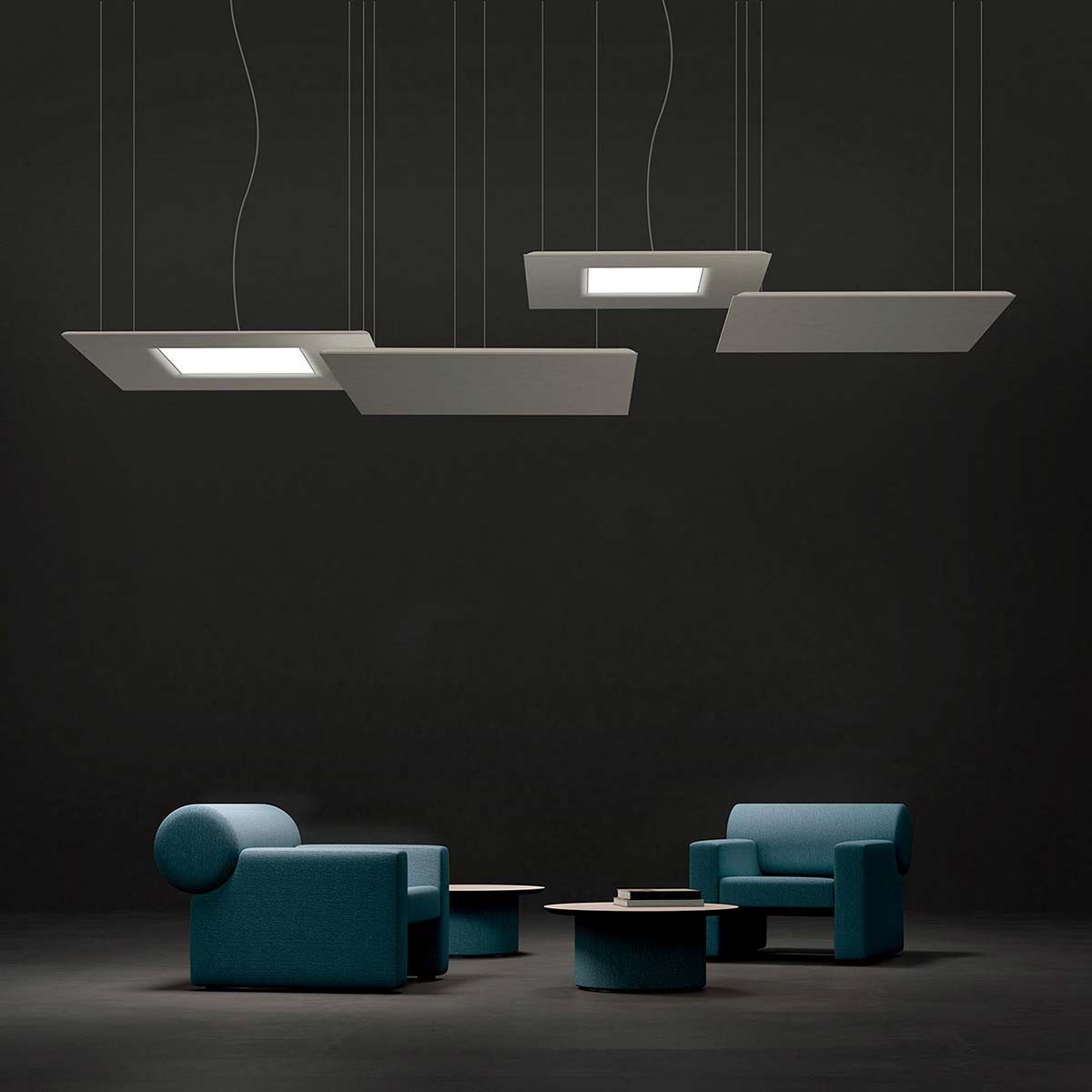

Parentesit by Arper
Created for contemporary, shared and “open” offices, Parentesit (designed by Lievore Altherr Molina) is a collection of modular sound-absorbing panels that reduce noise and create an ideal atmosphere for individual concentration and teamwork. The many options of configuration and customization offer comfort and functionality, contributing to reformulate surfaces and to complete spaces.
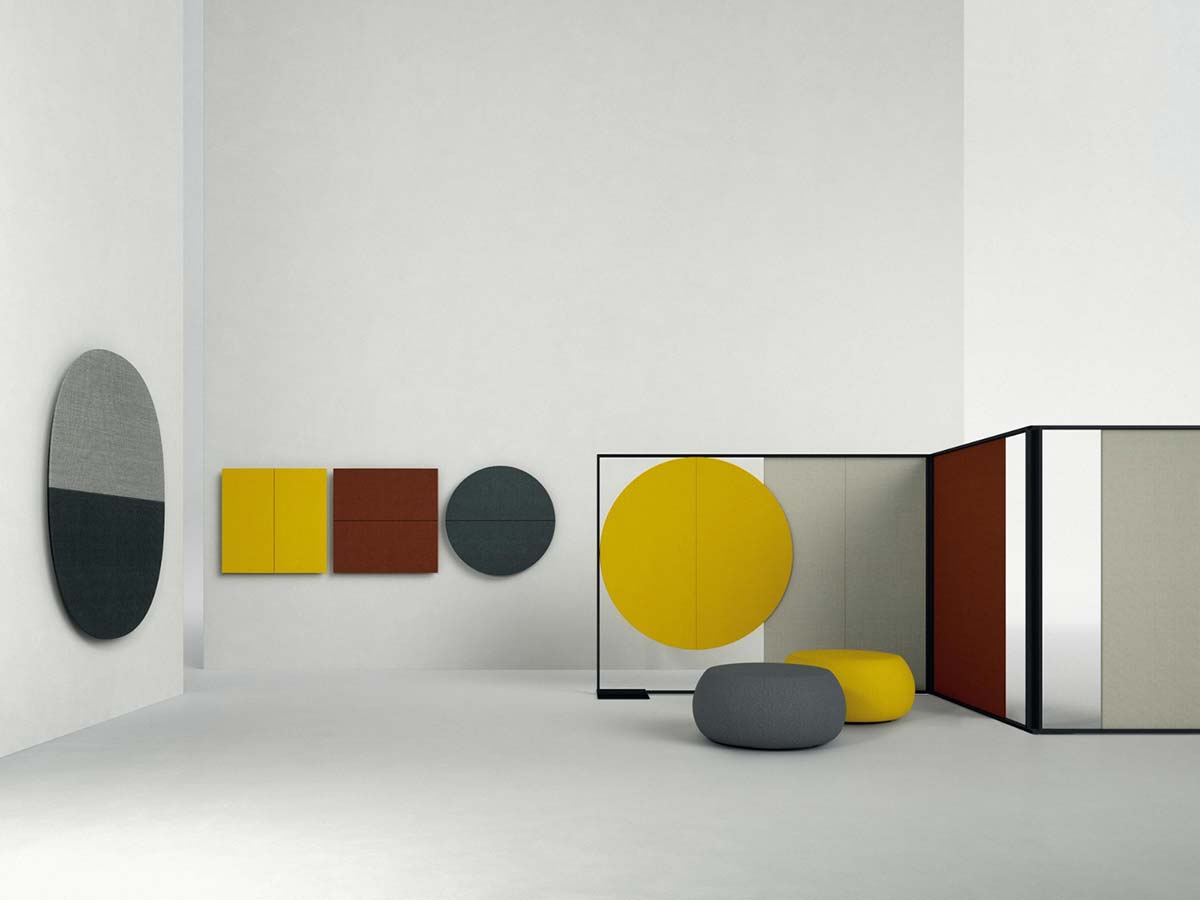
Pleiadi by Gallotti&Radice
Created by the design agency Studiopepe of Arianna Lelli Mami and Chiara Di Pinto, the Pleiadi decorative tiles are made with Cotton Tone, a material based on clay and cotton fiber: what is generally considered cotton production scrap can be used to ensure high sound-absorbing performance, even in very limited thicknesses.
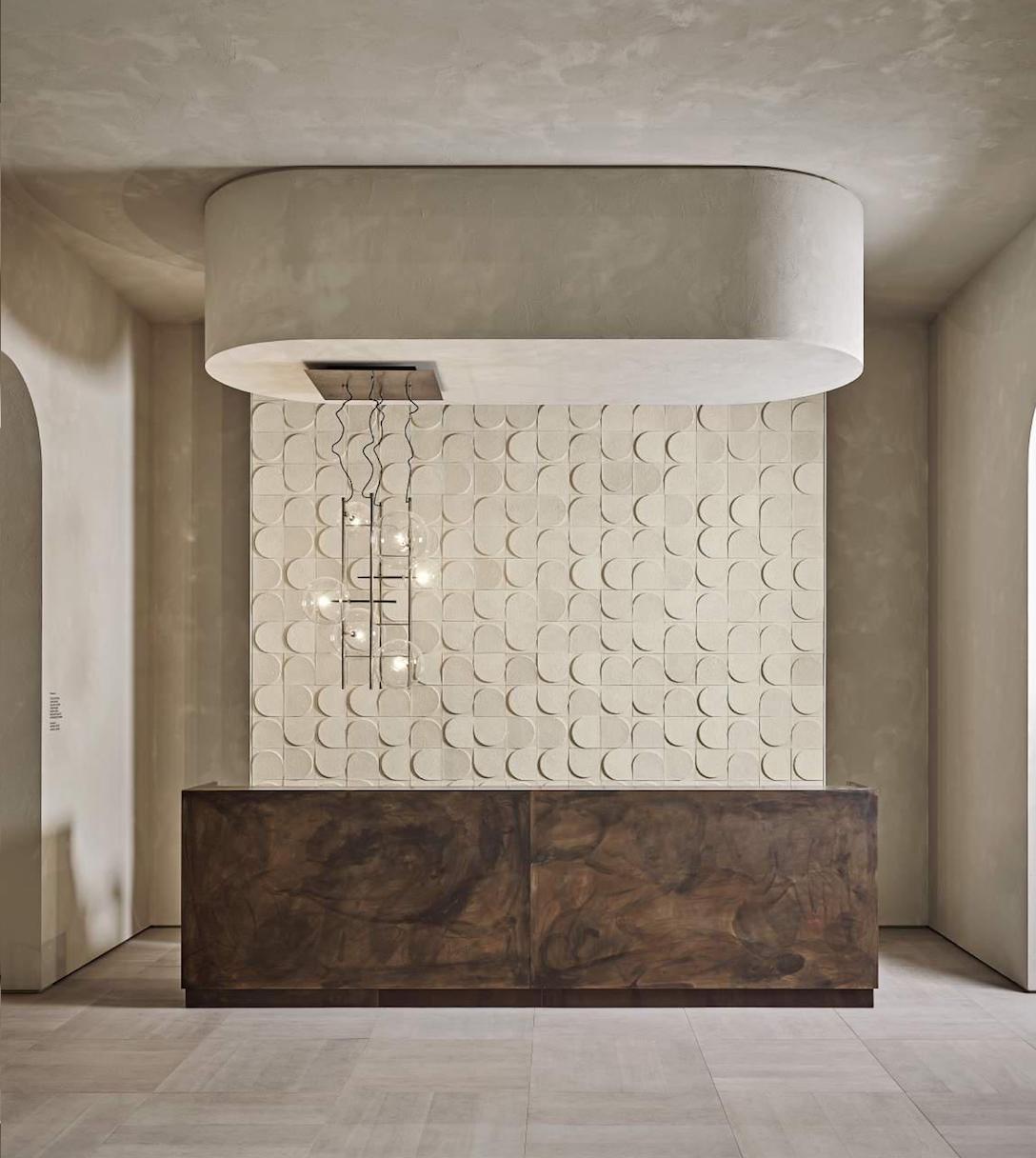
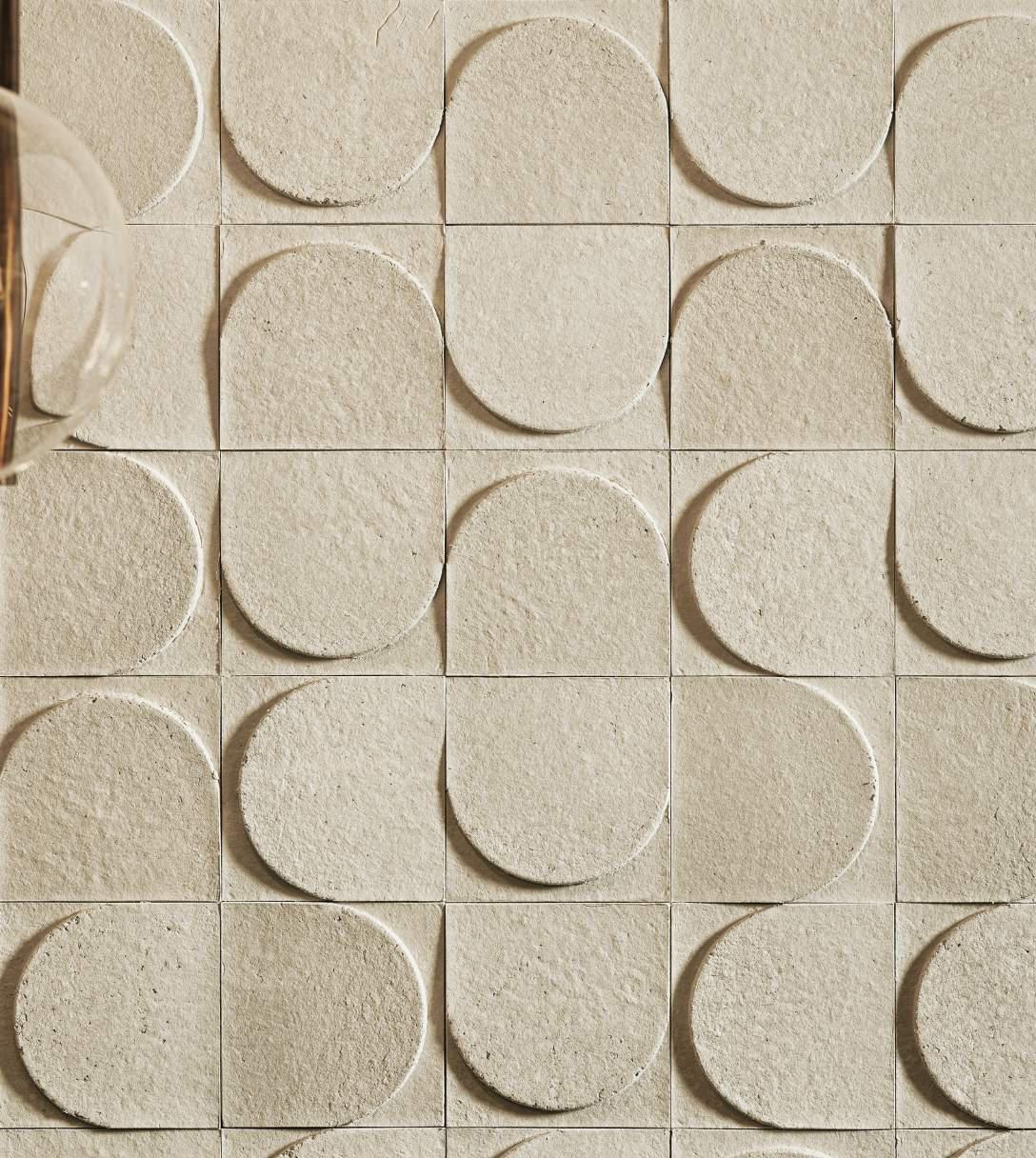
Baux Acoustic
On an international level, this is one of the most innovative producers. With the Wood Wool Tiles – a product composed of wood wool, concrete and water – the company offers acoustic tiles available in 9 different shapes and different colors, also for assembly in imaginative macro-mosaics.
